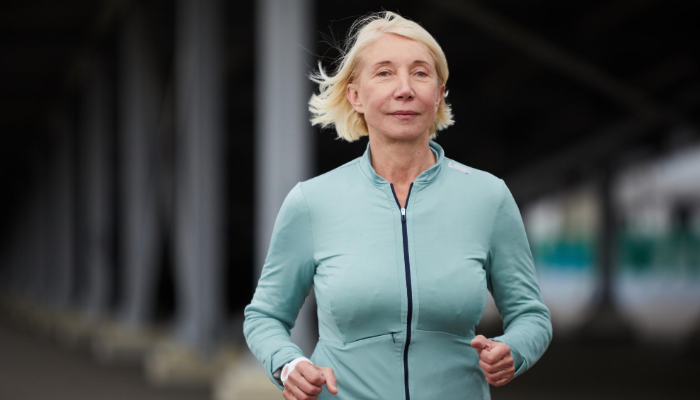The aging is a process of becoming older, which is genetically determined and environmentally modulated. It is a natural process. Everyone must undergo the process at his or her own time and pace. It denotes time-bound deterioration of physiological functions necessary for survival and fertility.
According to World Health Organization, aging is a course of biological reality, which starts at conception and ends with death.
The scientists have categorized how human beings age into four different classes called “ageotypes”.
Metabolic ageotype – The people, belonging to this class, might be at a higher risk for diabetes as they grow older.
Immune ageotype – The people, belonging to it, generate higher levels of inflammation and are more prone to immune-related diseases as they age.
Hepatic ageotyle – The people, belonging to it, are more prone to liver disease as they age.
Nephrotic ageotype – The people, belonging to it, are more prone to kidney diseases as they age.
We all want to stay young for as long as possible, both for our health and our appearance. The researchers have found that genetics account for only about 20% of how people age, while environmental and lifestyle factors play a much larger role.
Tips to slow down aging –
Below are enumerated some of the important tips to slow down the process of aging –
Manage the stress level –
Each chromosome has two protective caps at the two ends known as telomeres. As telomeres become shorter, their structural integrity weakens, causing cells to age faster and die younger. Chronic stress leads to shorter telomeres. That is why it is important to manage your stress levels.
Meditate daily –
It has been found by the researchers that those who meditated experienced genetic changes following mindfulness practice that were not seen in the non-meditating group after other relaxation activities. So the regular practice of mindfulness meditation slows down the aging process in the practitioners.
Do calorie restriction –
Calorie restriction means reducing average daily caloric intake below what is habitual, without malnutrition or deprivation of essential nutrients. It is a consistent pattern of reducing average daily caloric intake. It has been found in many studies that calorie restriction is associated with living longer.
Exercise regularly –
Experts recommend 30 to 60 minutes of moderate to vigorous walking on most days but benefits start with even less activity. Active people can live about five years longer on average than inactive people. A schedule of regular exercise, incorporating aerobic activity and strength training, reduces genomic instability. It also reduces telomere attrition. The association between physical exercise and telomere length could also be due to lower oxidative stress and inflammation.
The regular exercise certainly cannot reverse the aging process, but it does attenuate many of its deleterious systemic and cellular effects.
Take nutritional food –
As people age, they generally need fewer calories. However, their nutrient needs are just as high as or higher than when they were younger. That’s why, it is extremely important to eat nutrient-rich, whole foods. For healthy aging, we should choose a variety of colors in fruits and vegetables, and vary protein sources by choosing meats, fish, whole nuts, nut butters, and beans.
Eat healthy fats –
We should try to avoid saturated and trans fats as much as we can. Saturated fats are usually fats that come from animals. Trans fats are processed fats in stick margarine and vegetable shortening. We may find them in some store-bought baked goods and fried foods at some fast-food restaurants.
Good unsaturated fats include monounsaturated and polyunsaturated fats, which lower disease risk. Foods high in good fats include vegetable oils (such as olive, canola, sunflower, soy, and corn), nuts, seeds, and fish. So the consumption of good fats and avoidance of bad fats are necessary for healthy aging.
Saturated fats, while not as harmful as trans fats, negatively impact health. Thus they should be consumed in moderation. Foods containing large amounts of saturated fat include red meat, butter, cheese, and ice cream. Some plant-based fats like coconut oil and palm oil are also rich in saturated fat.
Stimulate your brain –
As we get older, our mental health is a major part of being able to live independently. Any activity that challenges our mind and requires us to learn new information or skills is considered an exercise.
It has been found that reading books, studying foreign languages, and playing games that involve mental activity stimulate the brain. By making your brain actively work you can slow down the aging process in the brain.
Have an adequate sleep daily –
Older adults need about the same amount of sleep as all adults, i.e. 7 to 9 hours each night. This is necessary for healthy aging.
It is a common misconception that our sleep declines with age. In fact, research demonstrates that our sleep needs remain constant throughout adulthood. So, what’s keeping seniors awake? The changes in the patterns of our sleep, called sleep architecture, occur as we age and this may contribute to sleep problems.
Other factors affecting sleep are the circadian rhythms that coordinate the timing of our bodily functions, including sleep. For example, older people tend to become sleepier in the early evening and wake earlier in the morning compared to younger adults. This pattern is called advanced sleep phase syndrome.
The sleep rhythm is shifted forward so that 7 to 8 hours of sleep are still obtained but the individuals will wake up extremely early because they have gone to sleep quite early.
Go to bed early –
There is an old adage – An hour before midnight is worth three afterwards. That’s why sleep experts advise to go to sleep early.
According to the study of the body-clock, there are set times when our body clock dictates the various processes to take place in hair and skin. The experts believe that from 8 PM to 11 PM is the time for hydration and stimulation, while 11 PM to 3 PM is the time for nutrition and regeneration, and 3 AM to 5 AM is the time for resting.
The bottom line –
The global population is aging fast, thus driving up age-related disease morbidity. Young people are the most attractive targets for strategies for slowing down aging. However, there is skepticism about whether aging processes can be detected in young adults, who do not yet have chronic diseases. But experts indicate that aging processes can be quantified in people still young enough for prevention of age-related disease, opening a new door for anti-aging strategies.
Reference –
Article by Dr. Pran Rangan
Stanford Medicine. “‘Ageotypes’ provide window into how individuals age.” ScienceDaily. ScienceDaily, 13 January 2020.
Article Source: https://EzineArticles.com/expert/Dr._Pran_Rangan/2322082
Article Source: http://EzineArticles.com/10300519

